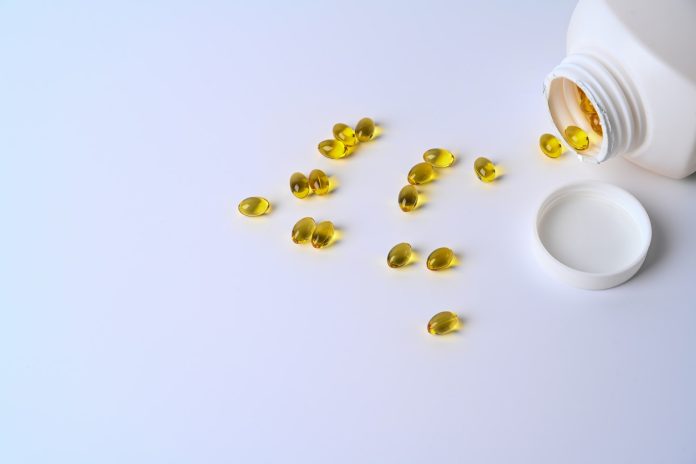
Scientists from Amsterdam Public Health Research Institute found that vitamin D 1200 IU/day does not improve depression and physical functions in older people.
Depression is a mental health disorder characterized by persistently depressed mood or loss of interest in activities, causing significant impairment in daily life.
Depressive symptoms and impaired physical functioning are very common among older adults.
Supplementation with vitamin D might improve both conditions, particularly in people with low vitamin D status.
Vitamin D is both a nutrient we eat and a hormone our bodies make. It is a fat-soluble vitamin that has long been known to help the body absorb and retain calcium and phosphorus; both are critical for building bone.
Ongoing vitamin D deficiency can result in osteoporosis, and bone and joint pain. Older people who don’t have enough vitamin D are more likely to fall and fracture their bones.
Signs and symptoms of vitamin D deficiency include frequent infections or illnesses. Fatigue and muscle weakness. Because vitamin D is key to bone health, an insufficient amount can cause bone and muscle weakness, which can lead to fatigue. Bone and joint pain. Fractures. Depression. Slow wound healing.
In the current study, researchers aimed to examine the effect of vitamin D supplementation on depressive symptoms, functional limitations, and physical performance in high-risk older people with low vitamin D status.
They also aimed to examine the effect of vitamin D supplementation on anxiety symptoms, cognitive functioning, mobility, handgrip strength, and health-related quality of life.
The team tested 155 people aged 60-80 years who had clinically relevant depressive symptoms, one or more functional limitations, and body vitamin D levels of 15-50/70 nmol/L (depending on the season).
These participants received 1200 IU/d vitamin D3 or placebo tablets for 12 months.
The researchers found that supplementation increased blood vitamin D levels in the intervention group after 6 months.
But no differences between the two groups were found regarding depressive symptoms, functional limitations, physical performance, or any other health outcomes.
Based on the findings, the team concluded that supplementation with 1200 IU/day of vitamin D for 12 months has no effect on depressive symptoms and physical functioning in older people with low vitamin D status, depressive symptoms, and poor physical functioning.
The research is published in The American Journal of Clinical Nutrition and was conducted by Elisa de Koning et al.
If you care about nutrition, please read studies about vegetarianism linked to a higher risk of depression, and fish and fruit in the Mediterranean diet offer big brain benefits.
For more information about nutrition, please see recent studies about antioxidants that could help reduce the risk of dementia, and ultra-processed foods may make you feel depressed.
Copyright © 2022 Scientific Diet. All rights reserved.








